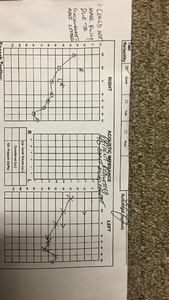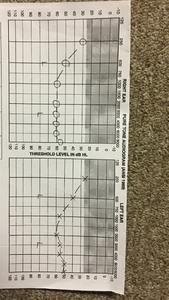Our audiograms look very similar (2nd one).Here are my two audiograms. The first was taken 36 hours after my acoustic trauma. The other was taken 5 months later.
View attachment 41805
View attachment 41806
Apparently both audiograms are completely normal. I also scored 100% on a speech-in-noise test in both ears. Despite this, I sit here 9 months after my trauma with moderate tinnitus in my left ear (and very mild tinnitus in the right ear).
I haven't had an extended audiogram. However, if I play pure tones above 8 kHz, I actually hear them better in my left ear than in my right ear (the left ear is the one with much louder tinnitus). Go figure I guess.
Can I ask how old you are? Have you had any changes over the last 9 months?

 Member
Member

